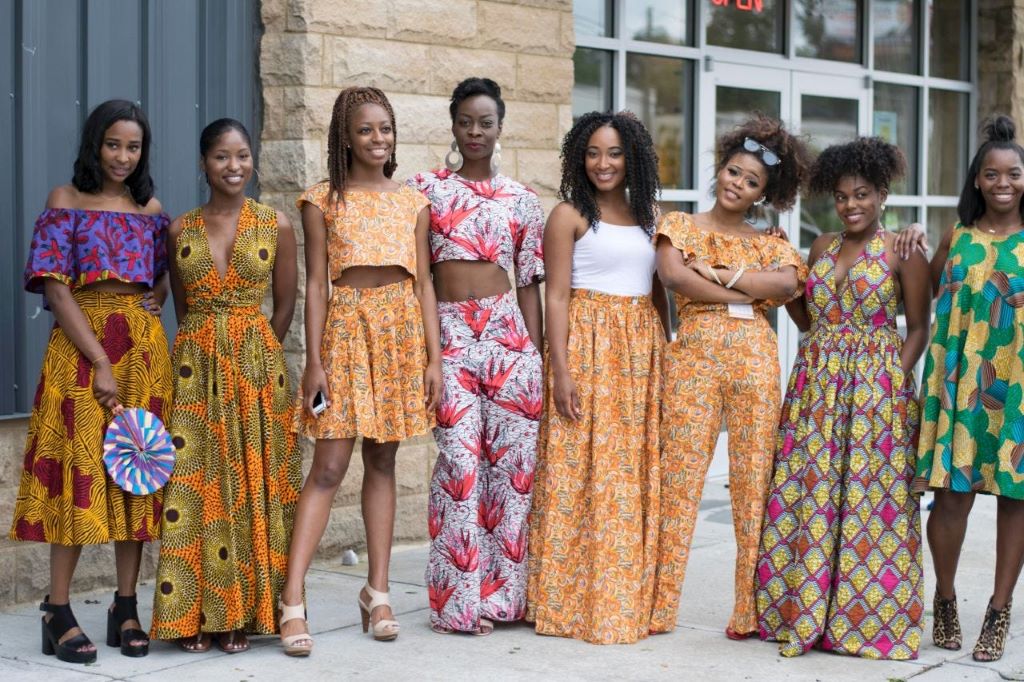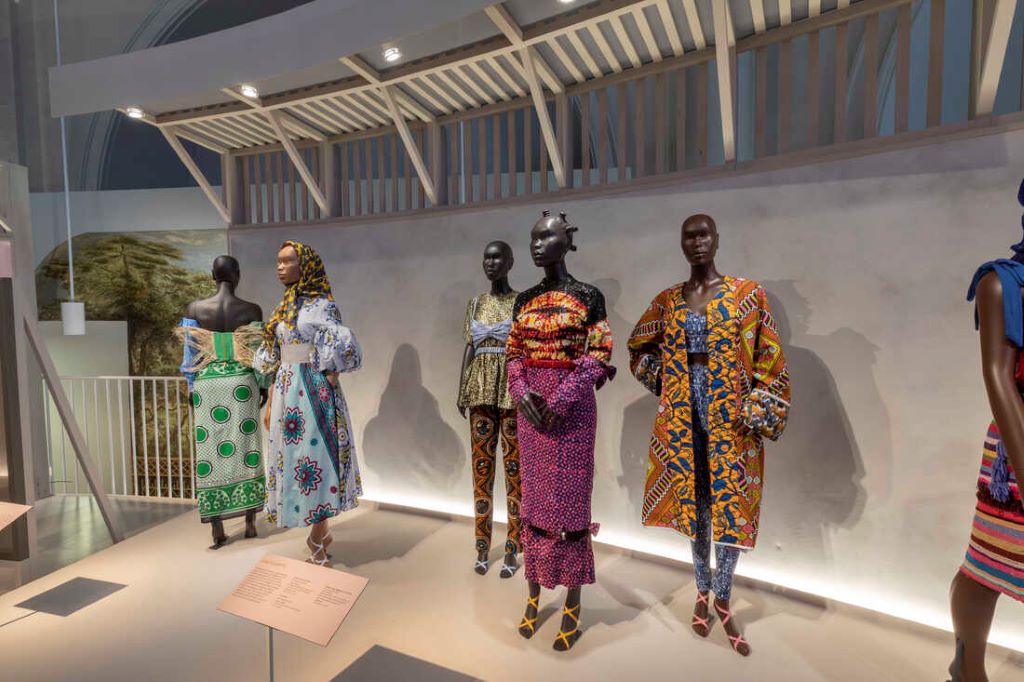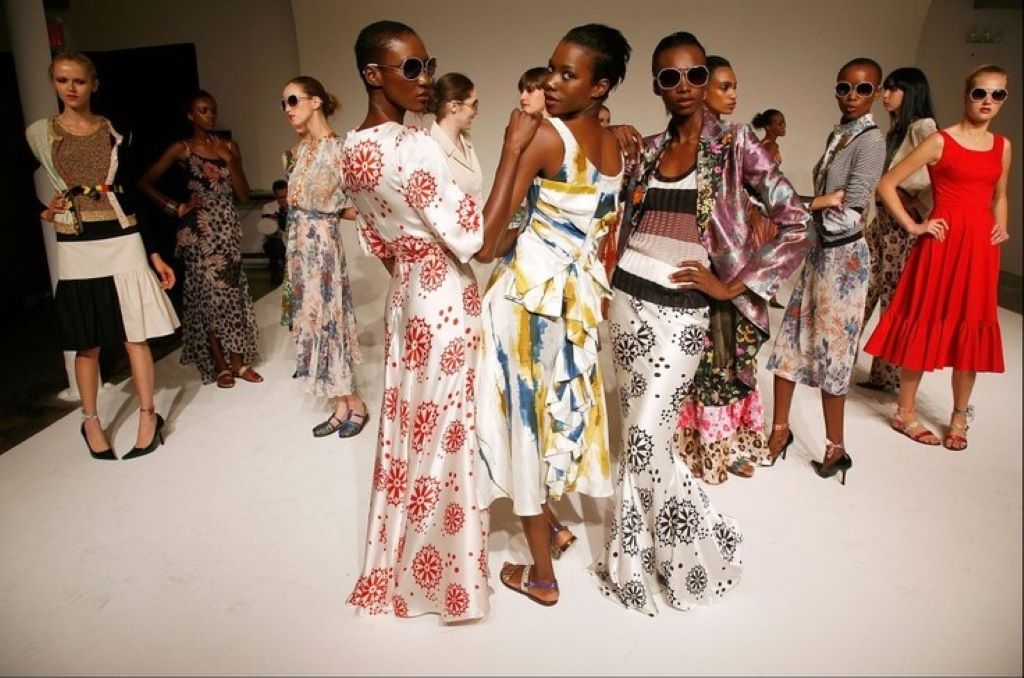
13 Feb The Vibrant World of African Clothing for Women
African fashion is a vibrant tapestry woven with threads of history, culture, and individuality. It transcends mere clothing and is a celebration of heritage and creativity. The bold and striking colors, intricate and mesmerizing patterns, and exquisite textiles all come together to create a truly captivating display of African style. Let’s explore the rich world of African clothing for women and how you can add a touch of that magic to your wardrobe.
Understanding the Beauty of African clothing for women
At the heart of African fashion lies a stunning array of fabrics. Let’s take a closer look at some of the most popular choices:
- Ankara: Chances are you’ve heard of Ankara! It’s also referred to as African wax print or Dutch wax print and is famous for its bold, colorful patterns. This versatile, 100% cotton fabric takes dye exceptionally well, resulting in saturated colors that don’t easily fade.
- Kente: A handwoven fabric from Ghana, Kente is known for its geometric patterns and bright colors. Traditionally, It was reserved for royalty and special occasions, but it is now widely worn and appreciated.
- Mudcloth (Bogolanfini): This fabric is hand-dyed using fermented mud in Mali. It takes on stunning geometric patterns in an earthy color palette. Mudcloth holds symbolic significance and is often used for important life events.
- Adire is a Yoruba textile created in Nigeria using vibrant indigo dyes and resist-dyeing techniques. Tie-dye and batik are examples of processes used to create unique patterns on Adire fabrics.
These are just a few examples of the many stunning fabrics used in African clothing. The textures, patterns, and techniques tell a story about the wearer, their culture, and the skilled artisans who create these stunning textiles.
Popular Styles of African Clothing
African clothing is incredibly diverse, yet several iconic styles are loved for their vibrancy and ease of wear:
- Dashiki: A classic, unisex, loose-fitting tunic commonly made from Ankara. It’s perfect for hot weather and offers a cool, comfortable vibe. Dashikis come in a fantastic range of vibrant colors and patterns.
- Boubous: This flowing, elegant robe has an undeniably regal air about it. Often elaborately embroidered, boubous come in an array of fabrics and make a real statement.
- Wrap Skirts: This breezy and adaptable style is a staple in many wardrobes. African wrap skirts can be easily dressed up or down and often utilize Ankara fabric for a burst of color and pattern.
- Headwraps are an incredibly versatile accessory! They can add a touch of color and pattern to an outfit or be used as protective coverings. There are seemingly endless ways to tie and style them.
How to Incorporate African Clothing into Your Style
Do you find yourself drawn to the vibrancy and cultural depth of African clothing but worried about how to style it? Fear not! A few tips can set you on a colorful fashion adventure:
- One Piece at a Time: You don’t need to dress head-to-toe in African prints to appreciate them. Start small with a vibrant Ankara skirt paired with your favorite plain T-shirt, or add a patterned headwrap to an existing outfit.
- Think About Your Everyday Style: If you like a minimalist look, go for a structured African clothing design with subtle patterns. Love making a statement? Go for bold colors and contrasting prints. African fashion offers something for everyone!
- Accessorize With Confidence: Play with jewelry, shoes, and bags inspired by African beadwork and designs to embrace the vibe fully.
Where to Find Authentic African Clothing
Finding quality African clothing has never been easier:
- Online Marketplaces: Sites like Etsy and Afrikrea offer a massive selection of unique, handmade items from African artisans and sellers located around the world.
- African Specialty Stores: Seek out African boutiques in your local area or major cities for a carefully curated selection.
- Festivals and Cultural Events: Many cultural festivals and markets feature incredible vendors selling hand-crafted African clothing and accessories.
Supporting Ethical and Sustainable Sourcing
The growing popularity of African fashion inspires both excitement and a need for mindful shopping. How can you support ethical practices and uplift African artisans? Here are some tips:
- Small is Beautiful: Opting for smaller boutiques, online platforms, and vendors helps ensure that your spending directly benefits African creators and communities.
- Questions That Count: Be inquisitive when shopping! Ask about where items are made, how artisans are compensated, and if fair-trade practices are in place.
- The Handmade Effect: Seek out authentic, hand-crafted items. While often slightly more expensive, these pieces possess not only their own story but also contribute to keeping heritage techniques alive.
Beyond the Outfit: Cultural Appreciation
African clothing is more than just a fashion statement, it often connects the wearer to rich cultural heritage. Taking the time to learn about the significance behind patterns, textiles, and styles further deepens your connection to the garments. It’s about respect and fostering deeper cultural understanding.
Here are some resources you can explore:
- Books and Documentaries: There are fantastic resources that examine African fashion history and the role of textiles in various cultures.
- Museum Exhibits: Cultural museums frequently host exhibitions focusing on African art and textiles.
- Online Cultural Platforms: Numerous platforms exist dedicated to educating and celebrating African cultures. Seek them out!
African Clothing: A Celebration of Expression
The true beauty of African clothing lies in its ability to transcend just mere fashion – it speaks volumes. Whether you’re celebrating a special occasion, adding vibrancy to your everyday look, or honoring African heritage, there’s something deeply fulfilling about bringing these artistic traditions into your wardrobe.
The dynamic patterns and expressive colors serve as a wearable form of storytelling. By taking a conscious approach to buying, you can help uphold a legacy of artisans and their unique creative spirit.
FAQs
Is it okay for anyone to wear African clothing?
Absolutely! Many people with African heritage take deep pride in seeing their cultural textiles enjoyed and appreciated by others. However, being respectful is key; take the time to learn about the context of what you’re wearing, be mindful of potential cultural appropriation, and give credit to African designers and artisans when you wear their creations.
How do I care for African clothing?
Many African textiles are hand-dyed and may need a little extra care. Hand washing or machine washing on the delicate cycle with like colors and cold water is usually best. Be sure to read the care tag on your specific garments.
Can I customize African clothing?
Absolutely! Tailors and seamstresses skilled in working with Ankara and other African fabrics can help you create custom fits and styles to suit your tastes.
Are there “formal” and “casual” styles of African clothing?
Yes! From flowing wraps and boubous suitable for elegant events to everyday dashikis and Ankara-print T-shirts, African styles offer a spectrum of formality depending on your individual choice.
Where can I learn more about African textiles and patterns?
Online resources, libraries, cultural centers, and local classes focused on African history and heritage are treasure troves of further knowledge!
Conclusion
The vibrant world of African clothing for women is rich with meaning, heritage, and sheer visual delight. Its style can uplift your mood, enhance any outfit, and start meaningful conversations.
Incorporating oversized clothes, like combining a sweatshirt perfectly, into your wardrobe allows you to experiment with comfort and style, seamlessly blending modern trends with traditional elements. Whether you choose a bold headwrap, a flowy wrap skirt, or an expressive dress, embracing African fashion connects you to a global community of artisans, designers, and enthusiasts. It’s a style that celebrates a cultural tapestry woven with creativity, individuality, and an undeniable love for vibrant self-expression.



No Comments